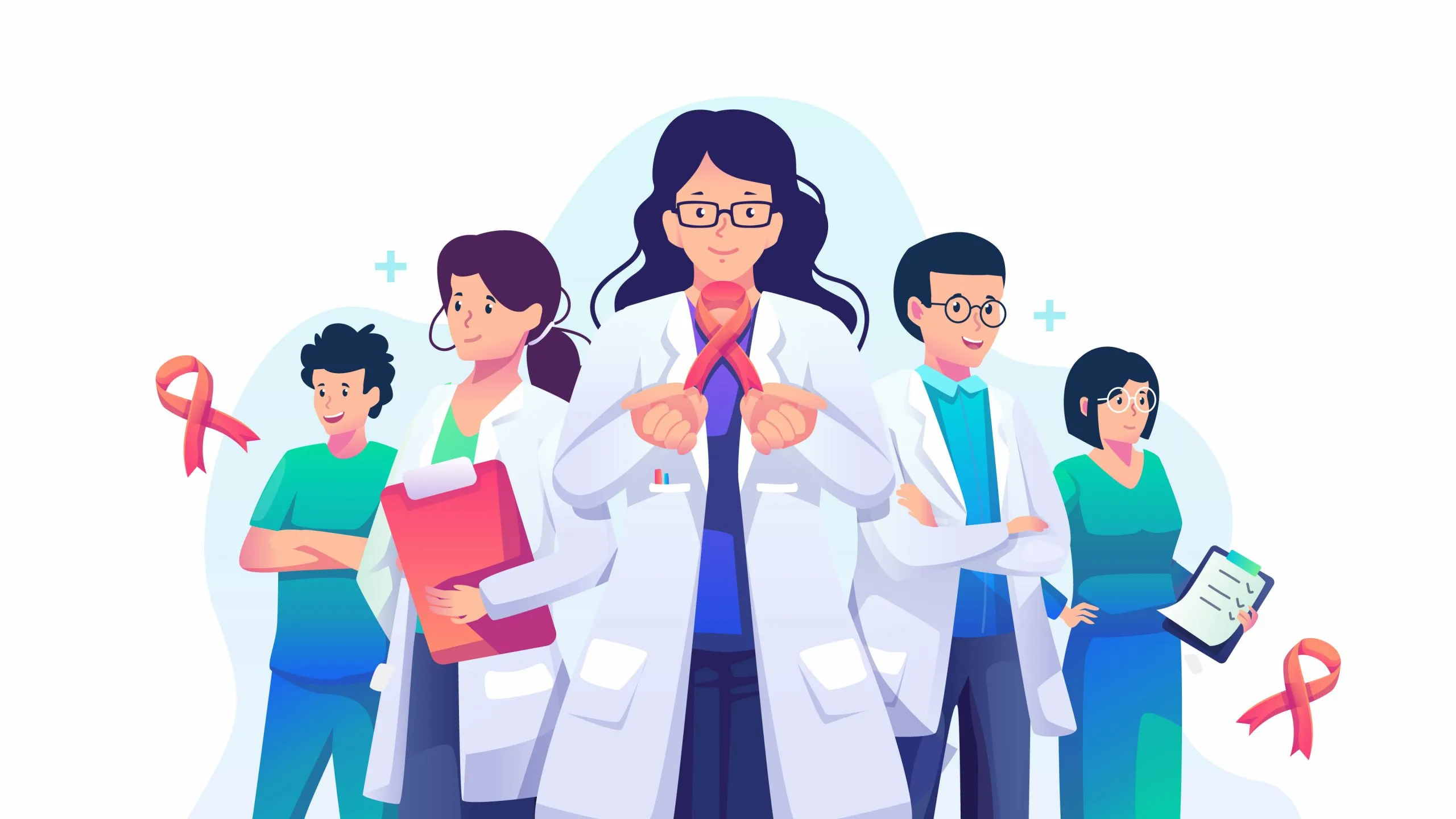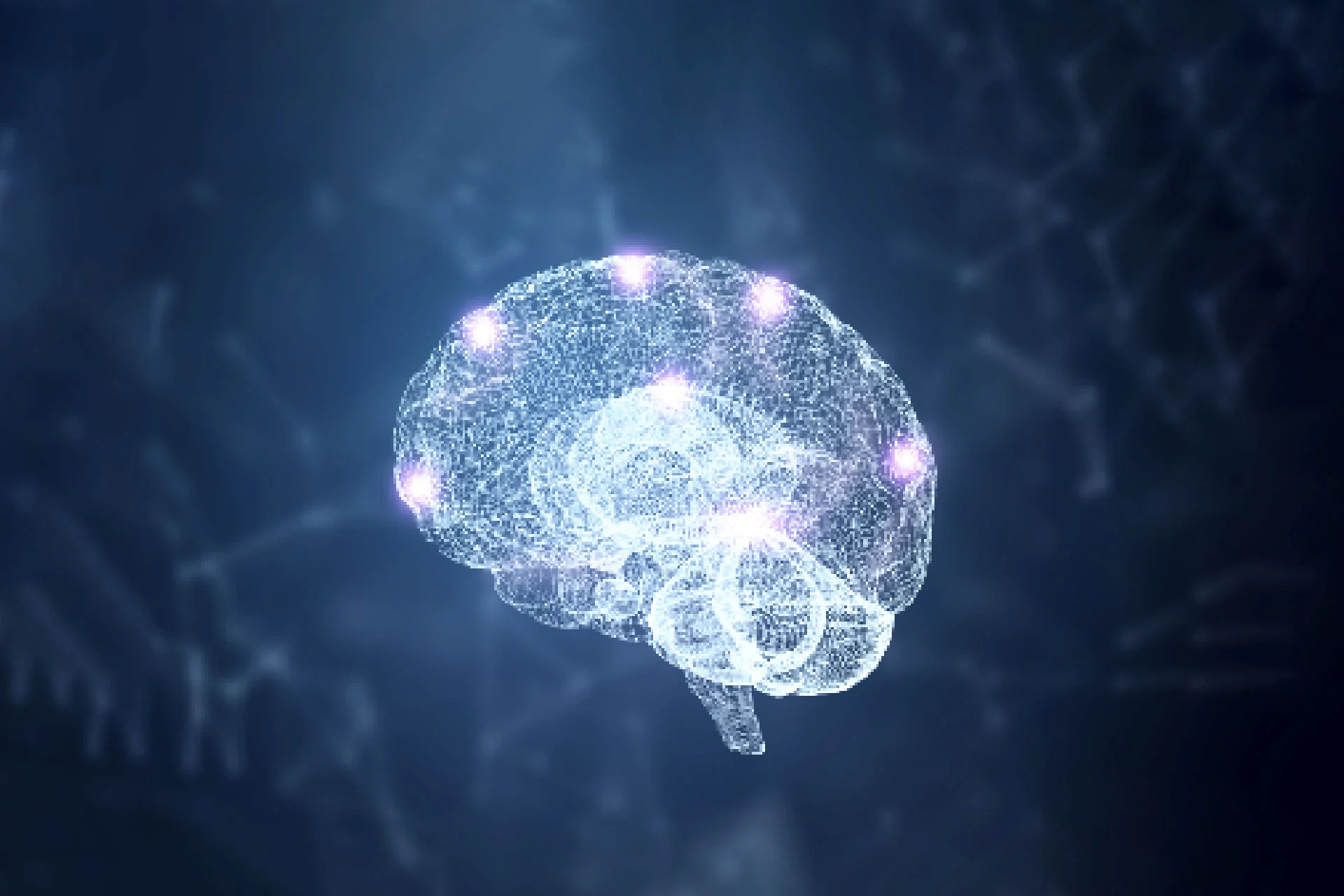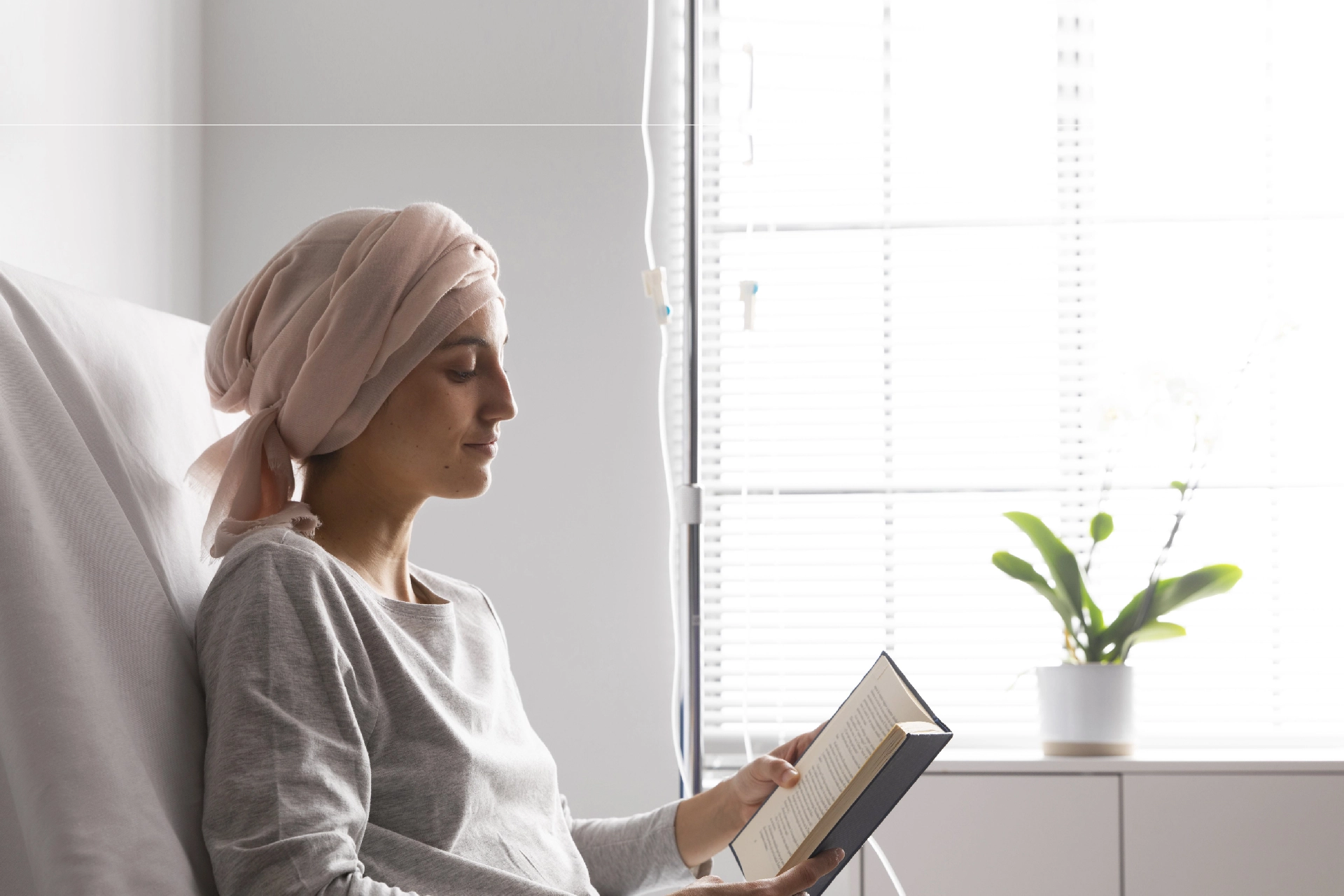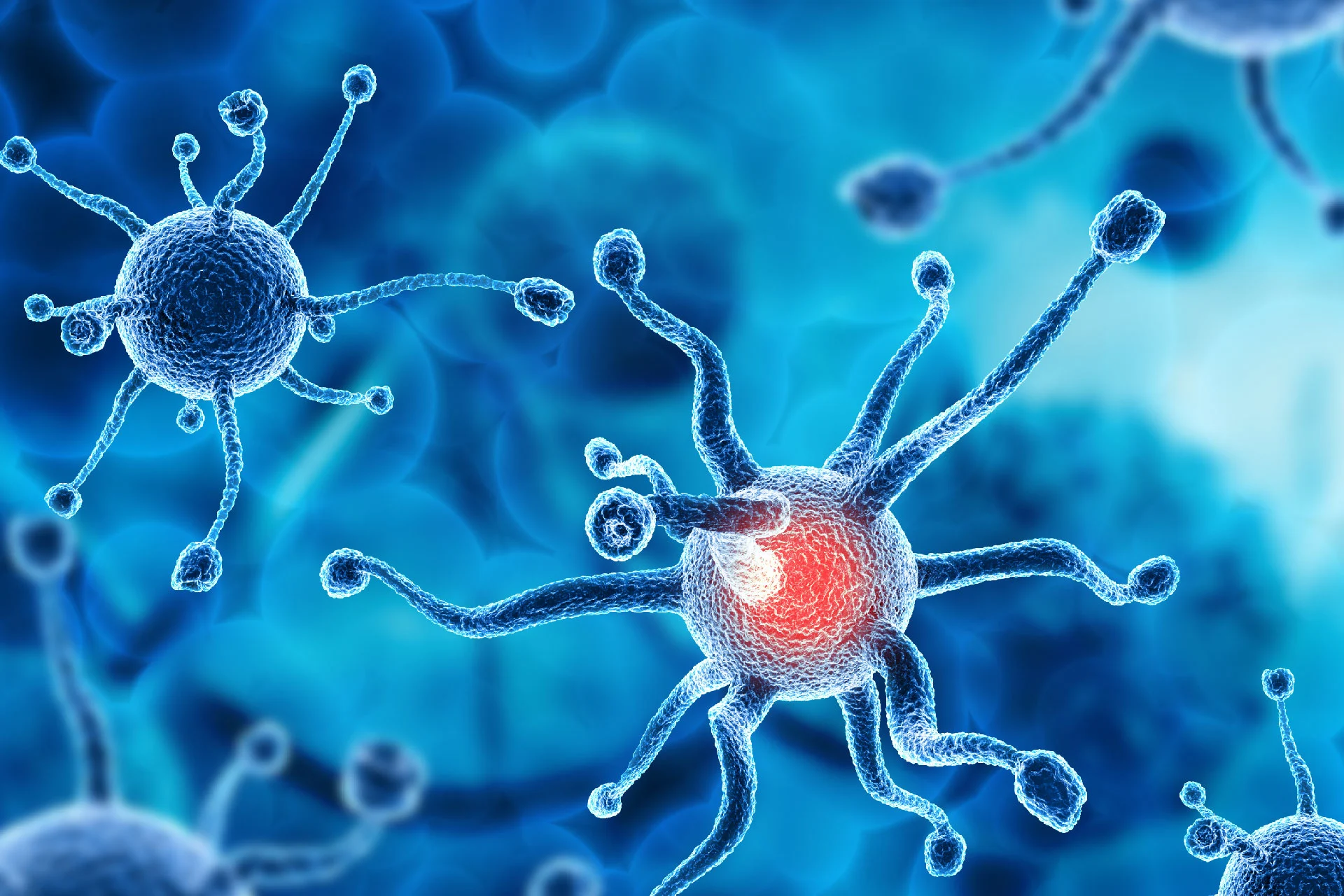Cancer | 12 min read
Cancer: Causes, Symptoms, Tests, Types and Stages
Medically reviewed by
Table of Content
Key Takeaways
- There are more than 100 different types of cancers
- Usual cancer symptoms include fatigue and rapid weight loss
- There are four stages of cancer altogether
What is cancer? It is a syndrome that affects the human body when genetic changes do not follow the ordinary course. Cancer interrupts the body's normal growth function, and as a result, cells in the body start growing abnormally, often forming a tumor. However, a tumor can be benign (non-cancerous) or malignant (cancerous).
While benign tumors don't affect other issues, cancerous tumors spread to other parts of the body quickly. Note that the formation of tumors is not a symptom of some cancers like leukemia.
As per data, the types of cancer discovered so far go beyond 100 [1]. To know about all essential things regarding cancer, ranging from types and symptoms to treatment and FAQs, read on.
Differences Between Cancer Cells Vs. Normal Cells
Here are the major differences between cancer cells and normal cells.
| Cancer cells | Normal cells |
| Ignore the body’s commands and keep reproducing even if there are enough cells | Stop reproducing following body’s commands when there are enough cells |
| Mature rapidly and don’t become specialized cells | Mature at a normal pace and attain their specific objectives |
| Affect normal cells and use them to ensure the growth of a tumor | Cannot affect other cells |
| Easily trick the immune system | Cannot escape immune system |
| Invade other tissues and may affect other parts of the body too | Don’t invade other tissues |
Four Stages of Cancer
Oncologists determine the stages of cancer using criteria like location and size of tumors. Take a look at them below.
- Stage 1: Cancer has just become visible in a small area and hasn't spread further
- Stage 2: Cancer has developed, but it hasn't affected other tissues
- Stage 3: Cancer has grown further and, in all probability, has involved lymph nodes and other tissues
- Stage 4: Cancer is in an advanced state and has affected multiple areas or organs of your body
Types of Genes That Cause Cancer:
Genetics refers to what you inherit from your family. Genes are present in chromosomes, which are a part of your cells. These genes are what guide molecular development in your body. In simple terms, genes are pre-determiners of your traits. Every cell contains thousands of genes.
Here are three primary types of genes that cause cancer:
Dna Repair Genes
Just like the name suggests, these genes are responsible for repairing your DNA. If there is any damage to your DNA, the cells that contain these genes help maintain and protect your DNA on a molecular level. These genes are also responsible to remove and recognize DNA lesions.
Tumor Suppressor Genes
Also known as anti-oncogenes, these genes ensure that the replication and division of cells is regulated and happens normally. These genes have a protein that helps them function properly. They basically ensure that inhibit tumor development and cell proliferation.
Oncogenes
Oncogenes are the ones that have the potential to lead to cancer. These genes mutate during tumor development and prior to mutation, they are known as proto-oncogenes. They are found in nearly 20% of cancers.
Cancer Causes:
Causes of cancer depend on the type of cancer. But there are some common factors that can increase your risk of developing cancer. However, cell mutation is a primary cause of cancer. Other common risk factors include:
Genes
As explained above, genes also have the potential to cause cancer. If you have a family history of certain cancer, you have a higher risk of developing it. Research suggests that nearly 10% of cancers are a result of inherited genes.
Lifestyle
While cancer is not curable, it is preventable. Certain unhealthy habits can lead up to the development of many cancers. For example, smoking and tobacco can lead to cancer of the lungs or the mouth. Moreover, unhealthy eating habits and a sedentary lifestyle can also lead to cancer.
Environment
Environmental factors include exposure to sun. High and extreme exposure to UV rays can cause skin cancer. Apart from that, gas, pollutants, and other things are also environmental factors that can lead to various types of cancer.
Viral and bacterial
With more development and research in this area, research suggests that certain viruses can cause nearly 20% of the cancers. Until recently, bacteria were refuted as being a cause for cancer. But it is suggested that certain bacteria can trigger inflammatory responses that may be chronic. This chronic inflammation can further make the body more vulnerable to cancer.
Given the causes, doctors may screen you for cancer in case of the following:
- One of your family members is undergoing treatment for cancer
- You are a smoker
- You work with toxic chemicals
- One of your genes has a mutation linked to cancer
- You have already been treated for cancer
- You have a blood clot, but the condition is unknown
- You have reached an old age
Early Signs of Cancer
The symptoms of cancer can vary among individuals. However, there are certain signs that are prevalent in most cancers. This is because your body goes through a number of changes including internal as well as external. You notice these signs in the form of fever accompanied by night sweats, changes in the texture of your skin, fatigue, weight changes, pain, and more.
Common Cancer Symptoms in Advanced Stage
As cancer develops, the symptoms worsen further. In an advanced stage, you may come across different signs of cancer, such as a hoarse voice, an irritating sore, trouble swallowing, the formation of a lump, as well as a wart or mole that changes its form frequently. In case you see these signs appearing in yourself or ib someone you know, make sure to get screened right away!
Types of Cancers
While all types of cancers have some common signs, there are some unique symptoms for each depending on the area cancer affects. Take a look at the different types of cancer visible among humans and their symptoms.
Liver Cancer
Liver cancer affects your liver gland. There are different types of liver cancer such as hepatocellular carcinoma, intrahepatic cholangiocarcinoma, and more. The most common symptoms of liver cancer include an enlarged abdomen and spleen, itchy skin, rapid weight loss, light-headedness, a swollen liver, and jaundice. One may also get a feeling of fullness after eating a small amount of food, and experience unusual bleeding, abdominal pain, nausea, fever, vomiting, and bloating.
Melanoma
Non-melanoma Skin Cancer
All types of skin cancer that are not melanoma are called non-melanoma skin cancers. Common symptoms of these cancers include red and scaly patches on skin with rough borders, painful and itchy growth, and tender sores.
Leukemia or Blood Cancer
Breast Cancer
Non-Hodgkin's lymphoma
This is a type of cancer that affects your lymphatic system. As the function of this system is linked to your immune system, this cancer puts you in danger of contracting other diseases easily. Symptoms of this cancer include rapid weight loss, unusually large lymph nodes, tiredness, an enlarged abdomen, occurrence of fever, chills, sweating, cough, difficulty breathing, pressure or pain in your chest, and more.
Lung cancer
Being responsible for a major number of cancer deaths worldwide, lung cancer is a type of malignancy you need to watch out for. A large number of lung cancer cases have their roots in active or passive smoking, so it is mandatory that you stay away from all sorts of tobacco to keep your lungs safe. Common symptoms of lung cancer include violent coughing fits, hoarseness, loss of hunger, formation of blood clots, chest pain, headaches, loss of blood with mucus, breathlessness, infection in the lungs, rapid weight loss, and more.
Uterine Cancer
There are two types of uterine cancer, which are called endometrial cancer and uterine sarcoma. Early periods (before 12 years of age), obesity, menopause, and family history are some of the uterine cancer causes. The usual symptoms of uterine cancer include unusual bleeding from the vagina, vaginal discharge with a foul odor, chronic pelvic pain, rapid weight loss, and more.
Prostate Cancer
The prostate is a gland found in a male body, located just below the bladder. When there is an abnormal growth in cells inside the gland, it indicates prostate cancer. Common symptoms of prostate cancer include erectile dysfunction, trouble ejaculating, a burn-like feeling while urinating, and blood coming out with urine or semen. You may also experience urination disorders such as problems starting or completing urination smoothly, and frequent urge to urinate.
Thyroid Cancer
Pancreatic Cancer
This cancer affects your pancreas. Common signs of pancreatic cancer include mental health disorders such as depression, diabetes, pain in your upper abdomen and back, formation of blood clots, tiredness, jaundice, rapid weight loss, and more.
Kidney Cancer
This cancer affects your kidneys and may lead to kidney failure if left untreated. It is important to watch out for its symptoms and get screened if you suspect your body is showing any of them. Usual signs of kidney cancer include blood coming out with urine, fatigue, anemia, loss of hunger, fever, rapid weight loss, and more. You may also experience pain in your lower back when you have no injury.
Colorectal Cancer
There are two types of this kind of cancer – one affects the colon, whereas the other leads to abnormal cell growth in the rectum. Major symptoms of colorectal cancer include exhaustion, ache in your stomach or gut, rapid weight loss, bleeding in your rectum, and blood coming out with stool. Apart from these, you may also experience a constant pressure in your abdomen and rectum that doesn’t go away with bowel movements. This can also lead to abnormal bowel movement, i.e., conditions such as diarrhea, constipation, or narrow stool.
Bladder Cancer
Unlike prostate cancer, bladder cancer can affect both men and women. It may lead to the formation of tumors inside your bladder, and spread to other parts of the body if left untreated. The usual symptoms of bladder cancer include blood coming out with urine and changes in urination, just like in the case of prostate cancer.
Cervical Cancer
Cervix is the organ in a women’s reproductive system that connects the vagina and uterus, and cervical cancer starts spreading from this organ. All women above 30 are at risk of this cancer, and it is important for them to get regularly screened. Symptoms of cervical cancer include vaginal discharge mixed with blood, chronic pelvic pain, and bleeding from the vagina (between periods, after intercourse, or after menopause).
How does Cancer Spread?
When a malignant tumor matures, the cancer cells in it may get carried by the bloodstream or the lymphatic cells to different organs and systems in the body. When this process goes on, canceled cells may form new tumors. Usually, lymph nodes are the first place where cancer spreads from its source.
Additional Read: Childhood Cancer Awareness MonthTests for Cancer
A biopsy is a test with which doctors can confirm malignancy. However, apart from biopsy, procedures like MRI, CT scan, USG, X-ray, urine tests, and blood tests are often prescribed to diagnose cancer. Here'sHere's a list of the standard tests for cancer:
- MRI
- CT scan
- Ultrasonography
- Urine tests
- Blood tests
- X-ray
Cancer Treatment
Cancer treatment is all about using therapies like medications, radiation, surgery, and more to control cancer symptoms. Though cancer cannot be cured completely, you can stop its spread by meticulously following these therapies. The following are the different treatment options for cancer.
Immunotherapy
Your immune system prevents or fights infections. Similarly, immunotherapy helps your body fight cancer. It is a biological therapy that boosts your body’s immunity against cancer and helps destroy cancer cells. T-cell transfer therapy, immune system modulators, immune checkpoint inhibitors, treatment vaccines, and monoclonal antibodies are a few main immunotherapy methods used.
Hormone therapy
With hormone therapy, doctors stop the development of the malignancy, which would have spiked a rapid growth in hormone production. It is usually helpful in the treatment of breast cancer and prostate cancer. Doctors may apply this therapy along with other treatments of cancer. Undergoing hormone therapy may lead to side effects such as tiredness, loss of libido, diarrhea, vaginal dryness, hot flashes, nausea, soft and weakened bones, large and tender breasts, and more.
Chemotherapy
When doctors use certain powerful chemicals as drugs to destroy cancer cells, it is called chemotherapy. Chemotherapies help treat cancers by targeting cells during certain phases of the cell cycle. As the growth of cancer cells is faster than that of normal cells, chemotherapy mostly impacts cancer cells.
Bone marrow transplant
Also referred to as stem cell transplant, this method is all about replacing damaged stem cells with healthy ones. Among the different types of stem cells, cancer only damages the hematopoietic stem cells that are supposed to turn into blood cells. During a successful transplant, bone marrow is collected from the center of the bones of a healthy donor and is put inside you. The different types of bone marrow transplants include allogenic treatment, autologous transplant, umbilical cord blood transplant, and more.
Biological response modifier (BRM) therapy
This treatment method targets cancer cells with substances prepared from living organisms. Note that they are produced naturally in the body or in the laboratory. Some types of BRN therapies may reduce the activities of your immune system to help your body fight cancer.
Radiation therapy
Also known as radiotherapy, this type of cancer treatment requires high doses of radiation to burn the affected cells and tumors. It either kills the cancer cells or affects their DNA, thereby stopping or slowing down the cell division process. Once the damaged cancer cells also die, our body breaks them down and eliminates them from the system.
Side Effects of Cancer Treatment
Here are the usual side effects of different types of cancer treatment.
Surgery
- Infection
- Tiredness
- Allergy to drugs used in anesthesia
- Formation of blood clots
- Chronic pain
Chemotherapy
- Vomiting
- Nausea
- Tiredness
- Loss of hair
Hormone therapy
- Bloating
- Formation of blood clots
- Erectile dysfunction
- The appearance of hot flashes
- Tiredness
Stem cell transplantation
- Flu
- Vomiting
- Nausea
Radiation
- Skin disorders
- Loss of hair
- Tiredness
Immunotherapy
- Swelling
- Chronic pain in a muscle
- Fever
- Rashes in skin
- Increase in bleeding or bruising
Knowing all this information regarding different types of cancer and their treatment, it is wise to start taking preventive measures for these most unwanted health disorders. For the best advice, you can consult top doctors online on Bajaj Finserv Health and get your queries resolved in no time. For a healthier tomorrow, start taking care from today!
Frequently Asked Questions
References
- https://www.cancer.gov/about-cancer/understanding/what-is-cancer#:~:text=There%20are%20more%20than%20100,cancer%20starts%20in%20the%20brain.
Disclaimer
Please note that this article is solely meant for informational purposes and Bajaj Finserv Health Limited (“BFHL”) does not shoulder any responsibility of the views/advice/information expressed/given by the writer/reviewer/originator. This article should not be considered as a substitute for any medical advice, diagnosis or treatment. Always consult with your trusted physician/qualified healthcare professional to evaluate your medical condition. The above article has been reviewed by a qualified doctor and BFHL is not responsible for any damages for any information or services provided by any third party.






